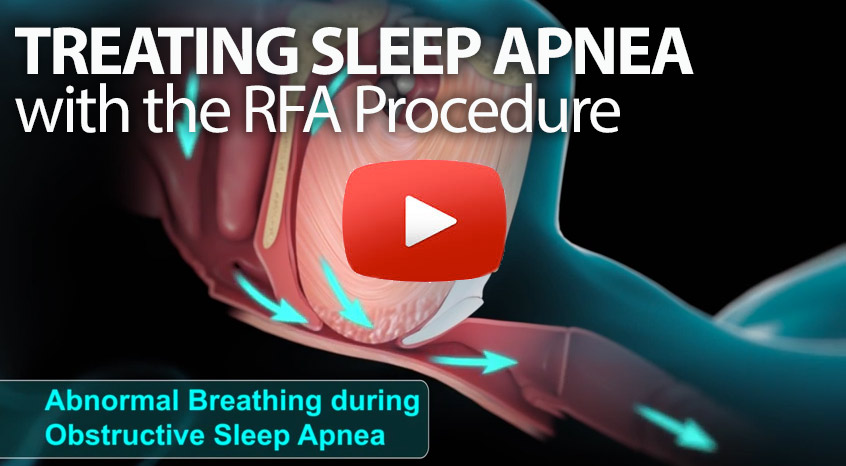Many patients who have obstructive sleep apnea also have erectile dysfunction, and there is a high correlation between these two conditions. While we are not completely sure if one causes the other, it is clear that the two disorders are related. Based on clinical studies, when evaluating sexual dysfunction and impotence in men who have sleep apnea vs. age-matched controls with patients who do not have sleep apnea, we know that the incidence of sexual dysfunction is higher in men with sleep apnea. In addition, men who have both sleep apnea and sexual dysfunction have decreased quality of life and decreased mood compared to men who have either condition alone.
High Incidence of Sleep Apnea in Men Having Erectile Dysfunction
The incidence of erectile dysfunction in men with sleep apnea ranges from 40% to 64%. The opposite is also true, that men who present initially with erectile dysfunction also have sleep apnea. That is, men who present for evaluation of erectile dysfunction are later found to have sleep apnea. A study performed in 1990 by Hirshkowitz and colleagues in the journal Urology showed that in a cohort of men who presented with erectile dysfunction, 91% were later found to have sleep apnea.
Given these findings, however, it is difficult to establish a direct causal relationship between these two conditions. We cannot simply state that if you have sleep apnea, that it is likely that you will also have erectile dysfunction. That’s because there are a number of risk factors which are common to both conditions. Both conditions are seen in patients who are elderly, have high blood pressure, and have diabetes.
Risk Factors for Sleep Apnea and Erectile Dysfunction
In a study performed in 2009 in the Journal of Sexual Medicine, Budweiser and colleagues found that sleep apnea was a separate, independent risk factor for developing erectile dysfunction. This study took various risk factors into account including patients with known heart disease (coronary artery disease), arterial disease involving the extremities (peripheral vascular disease), obesity, diabetes, high blood pressure, patients who had prior prostate surgery (a risk factor for impotence), patients who were on certain high blood pressure medications, the degree of apnea, and night-time oxygen levels. Taking all of these risk factors into consideration, the study found that sleep apnea was an independent risk factor for erectile dysfunction.
Obstructive sleep apnea (OSA) produces abnormalities in the cells lining blood vessels called endothelial cells. In addition, OSA activates the sympathetic nervous system. Both of these mechanisms may lead to high blood pressure and abnormalities of the small blood vessels predisposing to erectile dysfunction. In addition, many patients with OSA also have decreased amounts of testosterone, which may also lead to erectile dysfunction.
Studies have shown that the mean nocturnal oxygen levels (average oxygen levels during sleep) are independently associated with erectile dysfunction. And so, patients with untreated sleep apnea frequently will have decreased oxygen levels. A study done in 2008 in the International Journal of Impotence Research showed that patients whose oxygen levels dropped to 77% during sleep were at increased risk for erectile dysfunction.
Treating Sleep Apnea Can Sometimes Improve Erectile Dysfunction
Numerous studies have shown that treating the sleep apnea results in improvement of erectile dysfunction. However, not all patients had resolution of their sexual dysfunction when their sleep apnea was treated, and this is likely because of the other causative factors mentioned previously which are unrelated to sleep apnea.
So what can we conclude? It seems fairly obvious: Sleep apnea is a serious disease process with many associated health concerns. OSA is under-diagnosed as a disease entity, and it is under-treated. I have many patients with untreated sleep apnea, and I encourage them to first understand the health consequences of untreated apnea, and second to give it the old college try and seek treatment. CPAP is the first line of treatment, and all patients should try CPAP therapy as an initial treatment strategy. If CPAP does not work, then alternative treatment options should be pursued.
Radio Frequency Ablation (RFA)
One popular new treatment option for sleep apnea that can be performed in-office and offers patients the potential to eliminate the need for a CPAP machine or dental appliance is RFA. To learn more click here.
If you or someone you know is in need of a better night’s sleep, contact us for a no obligation consultation. We are the sleep specialists at Chevy Chase ENT located in the Virginia, Maryland, and Washington D.C. metro area dealing with sleep apnea and sleep-related problems. We can help diagnose your condition, recommend whether a sleep study would be beneficial, and offer you a variety of treatment options including CPAP, Radio Frequency Ablation (RFA) and more.
